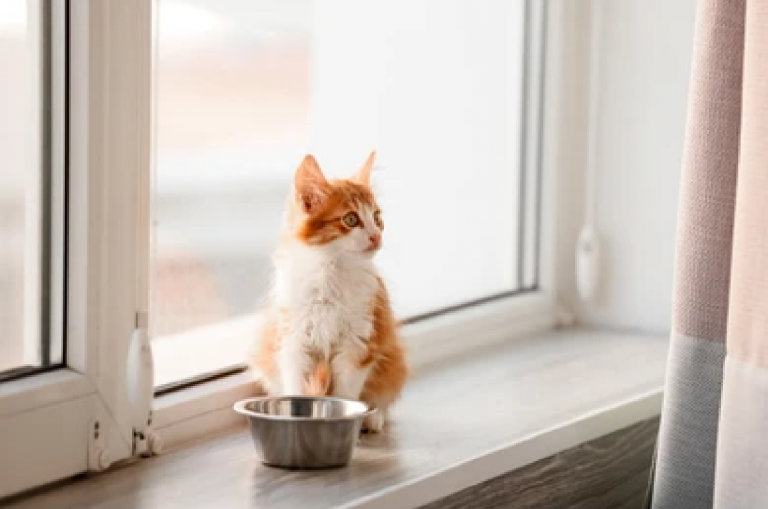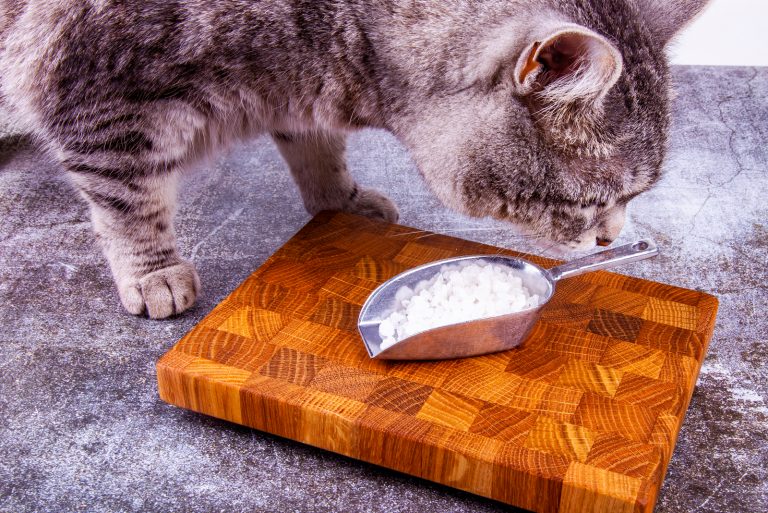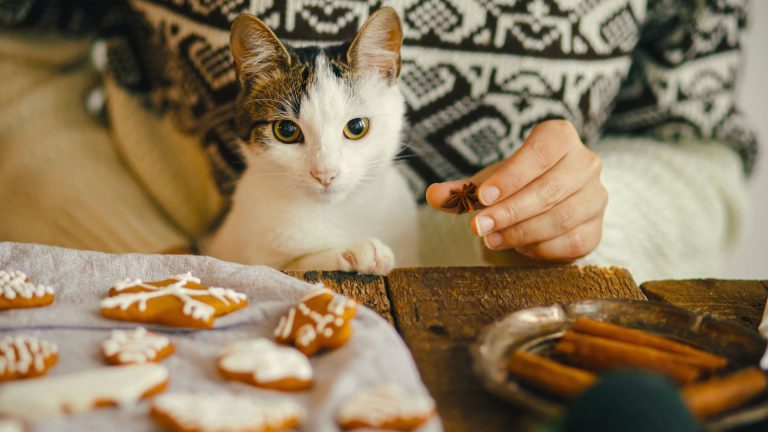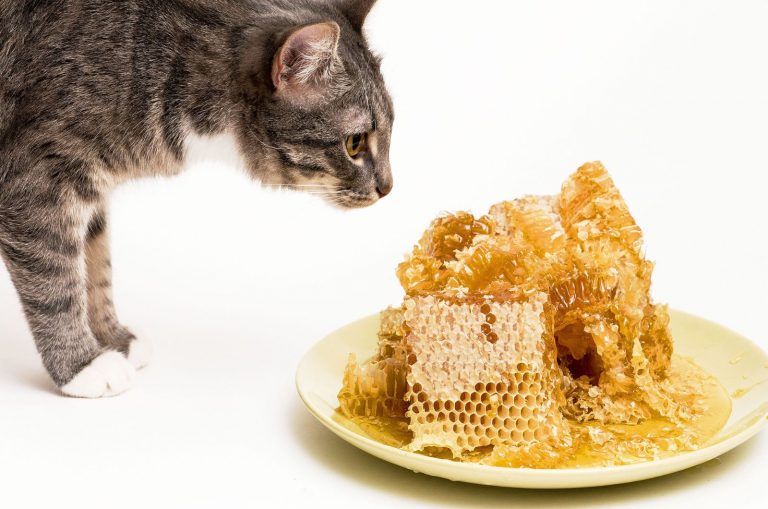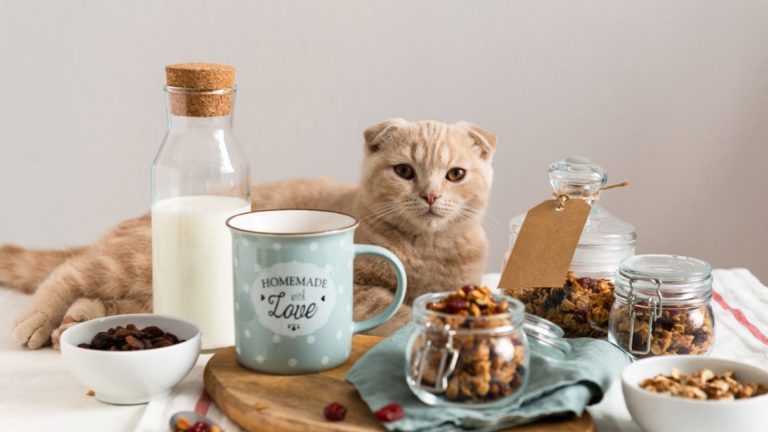Can Cats Eat Hummus? It’s Not Recommended, And Here’s Why
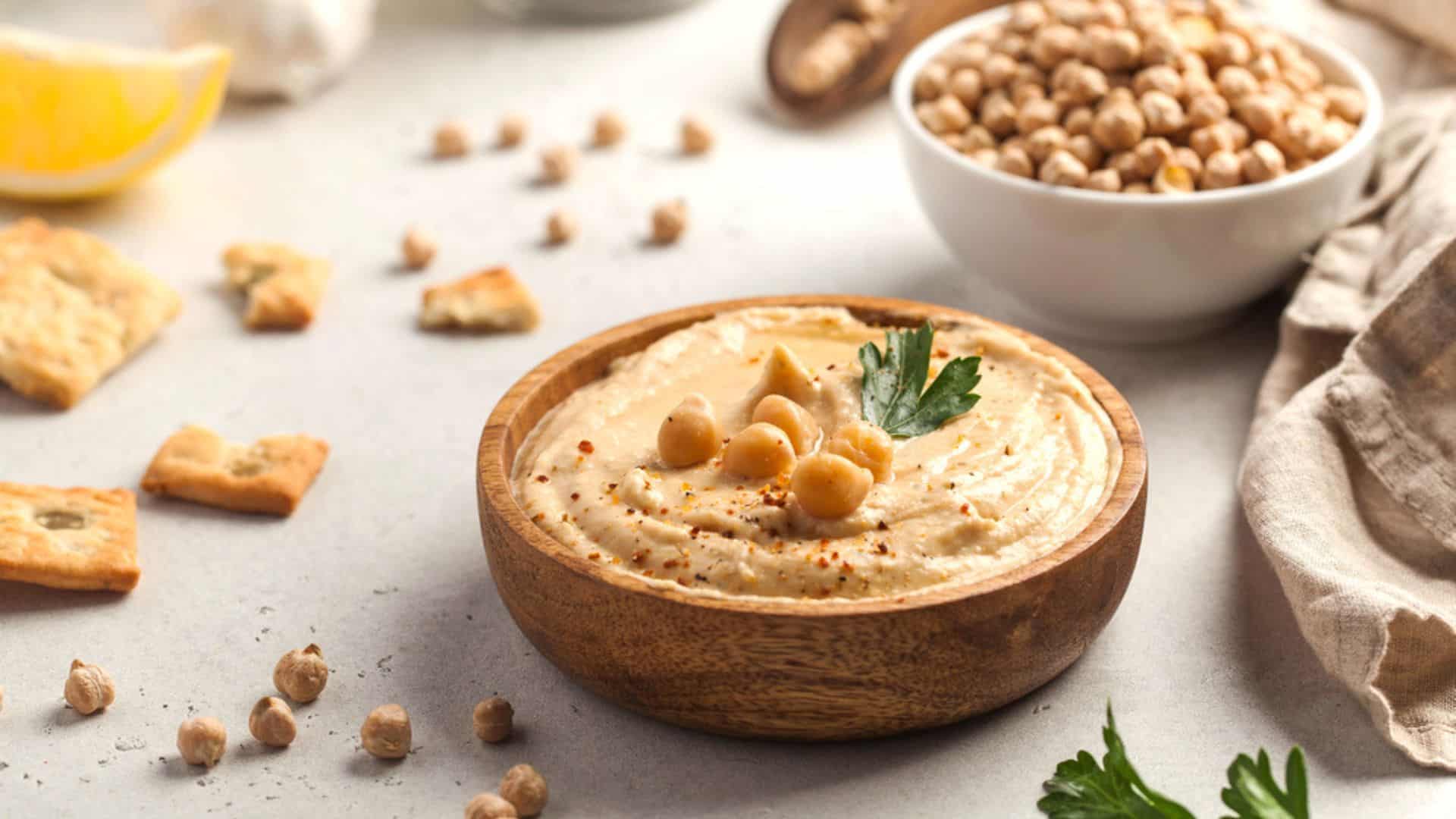
Let me start this article by saying I’m the biggest fan of hummus. If given a chance to eat it with pita bread daily, I would be the first to sign up. However, I would not sign my cat up.
This traditional Middle Eastern dish is a famous dip and a snack in the West nowadays, so if you’re eating it often, your cat will come up to you at some point and ask with those big eyes, Can I have some, please?
Can cats eat hummus? The answer is: No, cats should not be eating hummus, as almost all of its ingredients are bad for cats. Your cat will not get sick from one lick of hummus, but you should not give it to cats as a treat, let alone a meal.
In this article, I will explain why giving hummus to felines is a bad idea and offer you a list of cat-safe treats you should be giving your pet instead of hummus!
Can Cats Eat Hummus?
Hummus is not the worst thing you can give your kitty, but it’s also not a healthy cat treat. It is known to cause vomiting and diarrhea in cats, so you should refrain from giving your cat hummus entirely.
Don’t get me wrong – a tiny amount of hummus probably won’t cause health issues for your cat, but a more considerable amount might. Many hummus ingredients are toxic for cats if eaten in large quantities.
Therefore, it’s recommended not to give your cat any hummus. Considering the risks involved, giving your cat hummus is not worth it. In the section below, I will explain why that is the case.
What Is Hummus Made Of?
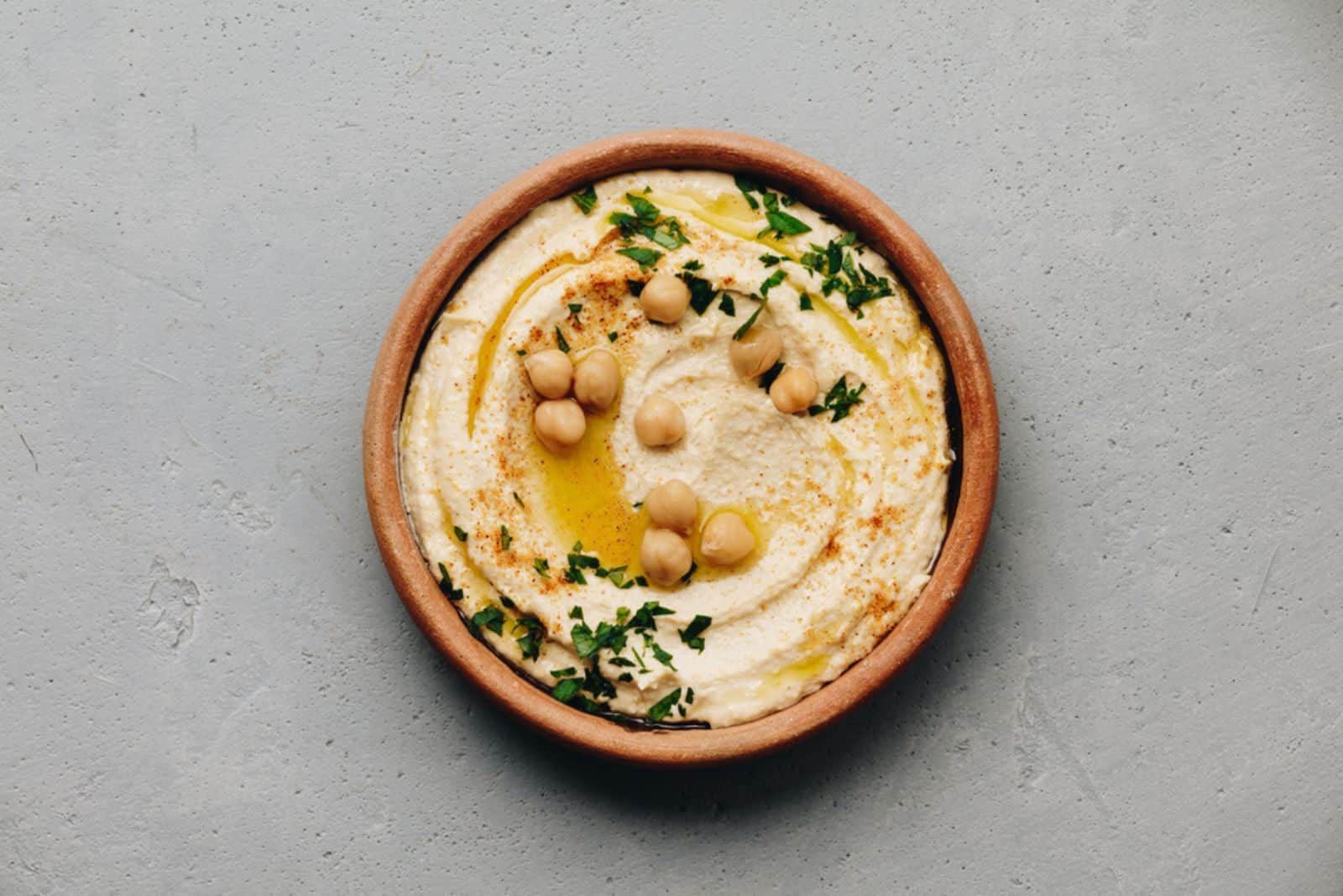
Now that you know cats are better off not eating hummus let’s get into details about why exactly hummus is not suitable for cats. That has to do with the main ingredients of hummus.
The main ingredients of hummus are:
• Chickpeas
• Tahini (a paste of sesame seeds)
• Lemon juice
• Garlic
• Salt
• Olive oil
• Spices and herbs
If you’re an experienced cat owner, you’ve probably already noticed some no-nos for the feline diet in this list.
Potential Issue No1: Garlic
Cats cannot properly metabolize thiosulphate, which is found in garlic (and onions too). The red blood cells carrying protein, hemoglobin, clots as thiosulfate levels rise, which leads to the rupture of red blood cells and the onset of anemia.
Symptoms of garlic poisoning include nausea, mouth irritation, drooling, stomach discomfort, vomiting, and diarrhea. Anemia symptoms include lethargy, pale gums, an accelerated heart rate, an elevated respiratory rate, weakness, exercise intolerance, collapse, and even death.
If you’re concerned that your cat may have consumed a lot of garlic-containing hummus, garlic, onion, or another allium, keep an eye out for signs of poisoning for the following 2-4 days.
Potential Issue No2: Chickpeas
Your cat is better off not eating chickpeas or other beans, and there are many reasons for this. They have a lot of empty calories and a lot of carbohydrates that are difficult to digest. Additionally, cat owners must be careful about how much carbohydrates their cats eat, as they cause weight gain.
Chickpeas also contain oxalic acid, which can cause allergies in cats that are sensitive to it. Apart from this, cats with kidney disease should not have any oxalic acid in their diet, so make sure to avoid them if your cat has kidney issues.
It is likely that your cat won’t experience problems if it consumes ordinary, cooked chickpeas. However, avoid giving your cat chickpeas or any other legume regularly .
Potential Issue No3: Tahini
Tahini is a paste made of sesame seeds, oil, salt, and usually some other ingredients. Sesame seeds are safe for cats to consume and offer some health benefits. However, other tahini ingredients are a potential concern, especially for cats’ sensitive stomachs.
Potential Issue No4: Salt
Most foods, especially human food, contain sodium. Salt is a typical preservative found in most foods. However, cats have a low salt tolerance and should not have it in larger-than-needed quantities.
Always check the salt content before giving your cat any human goodies, and steer clear of anything with excess salt.
Hummus contains salt, and since it offers no health benefits for the cat but does contain substances a cat does not need, it’s best not to give it to your feline.
Potential Issue No5: Lemon Juice
Due to toxic chemicals that are dangerous for cats, lemons and other citrus fruits are best kept away from cats. Lemon juice is healthy, but only for humans.
You’ve never heard of anyone putting a drop or two of lemon juice in their cat’s water, right? That’s because lemon juice (and lemons) can cause excessive drooling, vomiting, diarrhea, and other health issues.
Potential Issue No6: Spices
You’re probably aware that cats have sensitive stomachs and cannot easily digest every food you give them.
Spices such as paprika and cumin are common ingredients of hummus, and although they’re not toxic for cats, they can cause stomach upset.
What If I Make Homemade Hummus? Is It Cat-Safe Then?
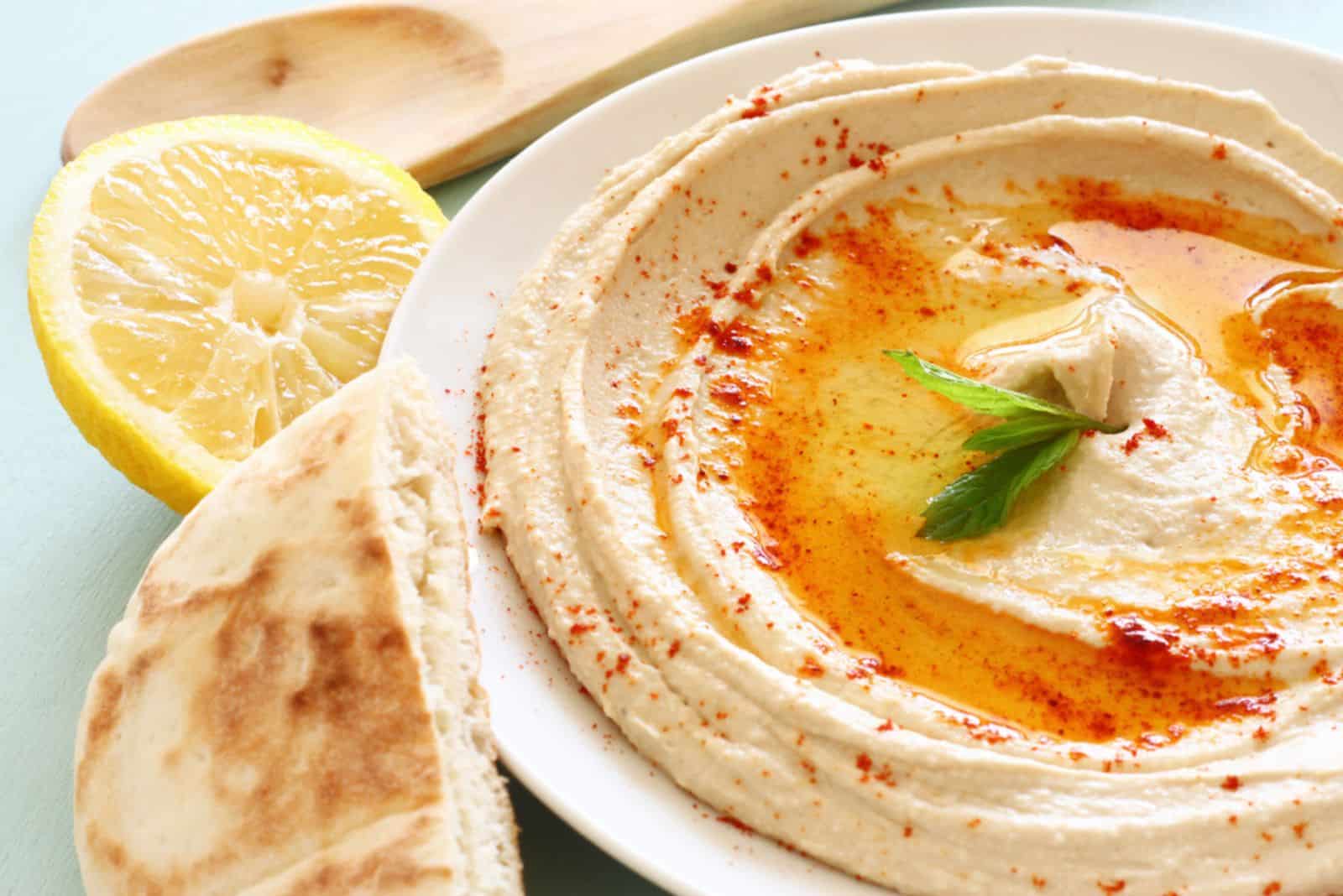
Store-bought hummus contains more chemicals than homemade hummus, meaning a homemade version would be a healthier option. So, is homemade hummus bad or not?
You cannot make cat-safe hummus. This popular middle eastern food must contain ingredients such as garlic, tahini, and salt, which are not cat-safe.
Even if you make homemade hummus, it will still contain ingredients that can cause harmful side effects for your kitty. Therefore, it’s best to stick to giving your cat plain old cat food.
Hummus Is Protein-Rich, So It’s Good For Cats? Not Really!
Hummus is an excellent source of plant-based protein, making it one of the go-to protein sources for many vegans and vegetarians. You might already know that a healthy cat’s diet should be composed mainly of protein. So, does this make hummus somewhat suitable for cats?
Even though hummus contains a relatively high amount of protein, it’s still not the right kind of protein. Cats are obligate carnivores, meaning they need meat-derived protein. Plant-derived and meat-derived protein are not the same, and cats should predominantly have meat-derived protein.
Because of this, and the fact that hummus contains substances harmful to cats in significant amounts (such as garlic, tahini, lemon juice, and salt), hummus is not a good choice of food to give to your cat.
My Cat Ate Some Hummus – Should I Be Worried?
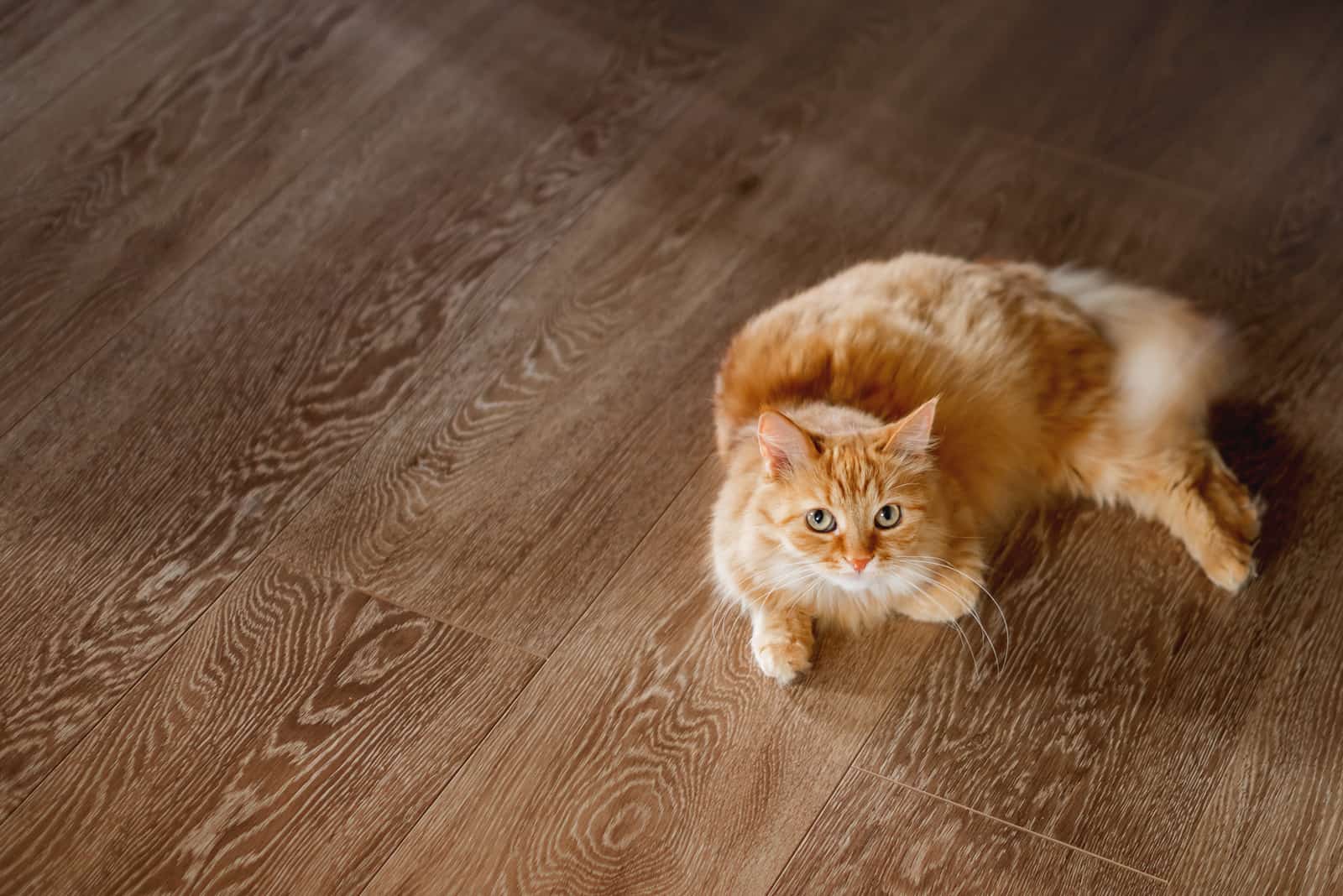
I might have scared you with the talk about how almost every ingredient of hummus is potentially toxic for cats. Although that was not my intention, if it stops you from choosing hummus as a cat treat, I’ve done my job successfully.
Let me clear something up immediately – hummus itself is not toxic, and three licks of hummus will not send your cat to the vet’s office! You can even see some videos online of cats eating hummus, and they’re perfectly okay.
If Your Cat Had A Lick Or Two
However, this does not mean hummus is healthy for cats or that eating hummus will not cause vomiting or diarrhea in your feline.
If your cat had more than a few licks of hummus (perhaps your leftover hummus from a plate), there is a chance your kitty will experience some side effects.
If Your Cat Had A Lot Of Hummus
If your cat has eaten a large amount of hummus, especially one that contains a lot of garlic, then you need to pay close attention to your cat’s behavior.
If your cat starts vomiting, having diarrhea, being lethargic, not breathing properly, and having pale gums, you must go to the vet as soon as possible.
As you can see, the adverse effects of hummus largely depend on how much the cat has eaten. Hummus is not toxic in tiny amounts, but large amounts are likely to cause uncomfortable side effects.
Does Hummus Give Cats Diarrhea?
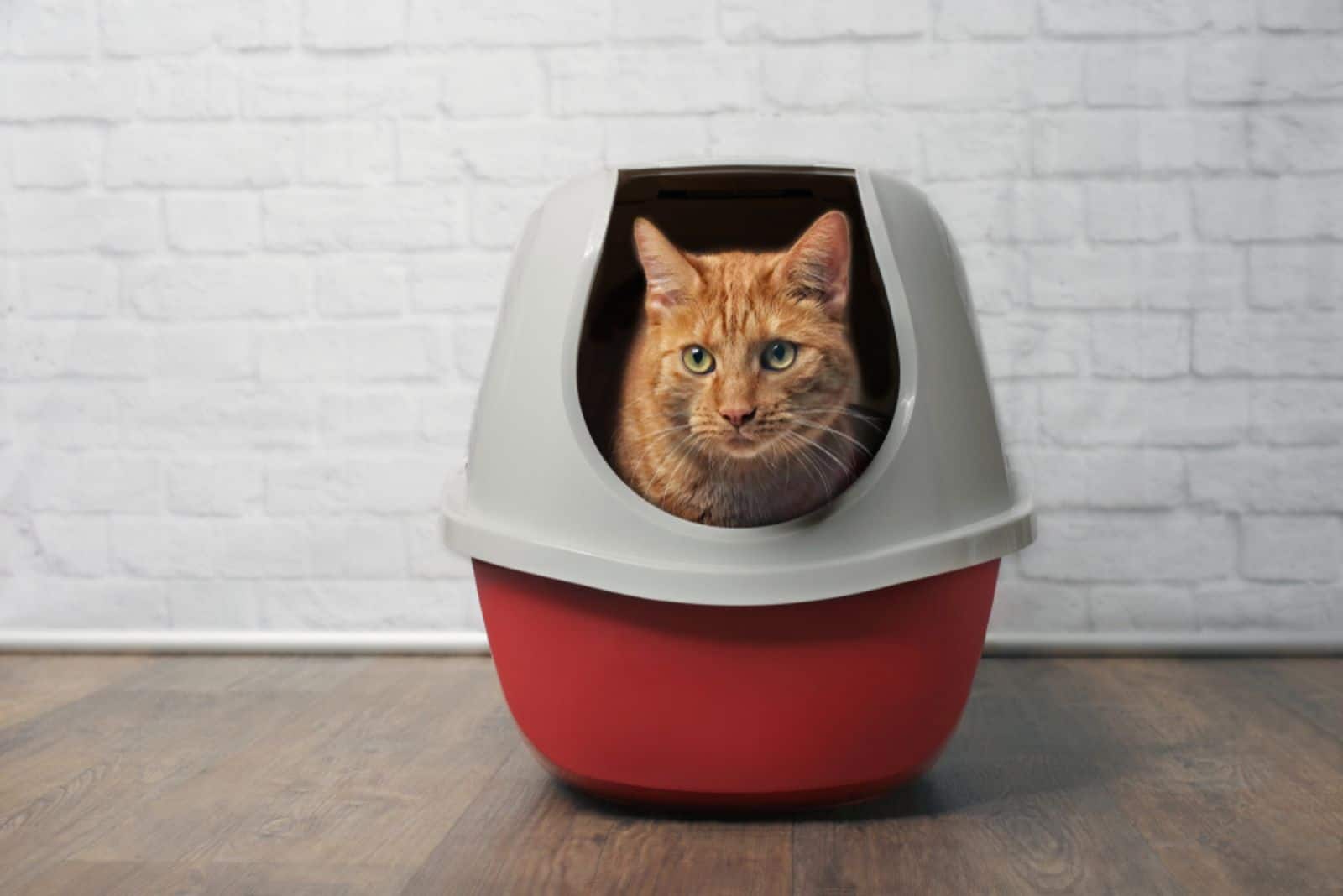
Certain ingredients in hummus are known to cause diarrhea; garlic is the most likely causative agent.
Very small amounts of hummus will most likely not cause diarrhea for your pet, as a small amount of hummus also means a small amount of garlic.
However, if your cat eats a lot of hummus, you can expect diarrhea as a side-effect, accompanied by vomiting and other symptoms.
Apart from garlic, other potential causes of diarrhea are tahini and lemon juice. Tahini is made of sesame seeds, known to cause diarrhea if eaten in large amounts. The common side effects of lemon juice consumption include stomach discomfort, vomiting, and diarrhea.
To give you a simple answer: hummus can cause diarrhea if eaten by a cat, as many ingredients of hummus, such as garlic, tahini, and lemon juice, are known causative agents of feline diarrhea.
Why Does My Cat Love Hummus?
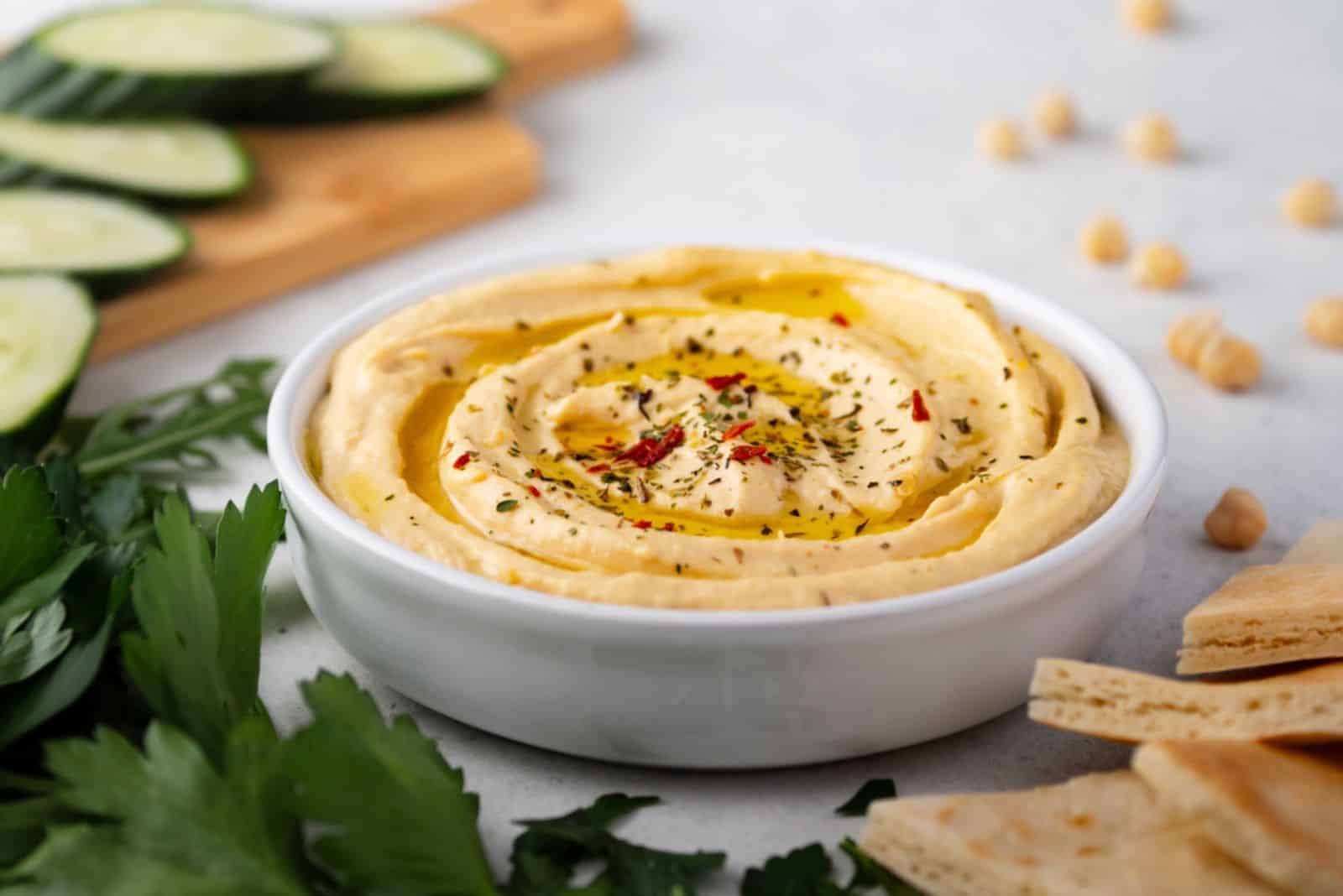
Some cats love hummus, some are okay with it, while others hate it. Hummus is somewhat of a grey zone in the cat world. Most cats will not start drooling immediately after you get some hummus for yourself.
If your cat is a hummus lover, it’s one of a few ones, I must say. I’ve personally never come across a hummus-loving cat. But that is a cool fact about your feline!
What Else Should Cats Not Eat?
No matter the nutritional value, some foods should not be given to cats. Some of them are toxic even in small quantities, and most of them will cause digestive problems for your cat.
The “Foods that cats should not eat ever” list goes like this:
• Anything containing alcohol
• Anything with caffeine
• Overly salty food
• Chocolate
• Lemons, limes, and oranges
• Coconut and coconut water
• Milk, cheese, yogurt
• Grapes and resins
• Nuts
• Chives
• Raw eggs
• Raw meat
Not giving these foods to cats is easy, and your poor cat’s stomach and litter box will thank you for it! Some of these foods cause more severe health problems than an upset stomach, so please ensure your cat does not eat any of the items on the list.
What Are Some Healthy And Safe Cat Treats?
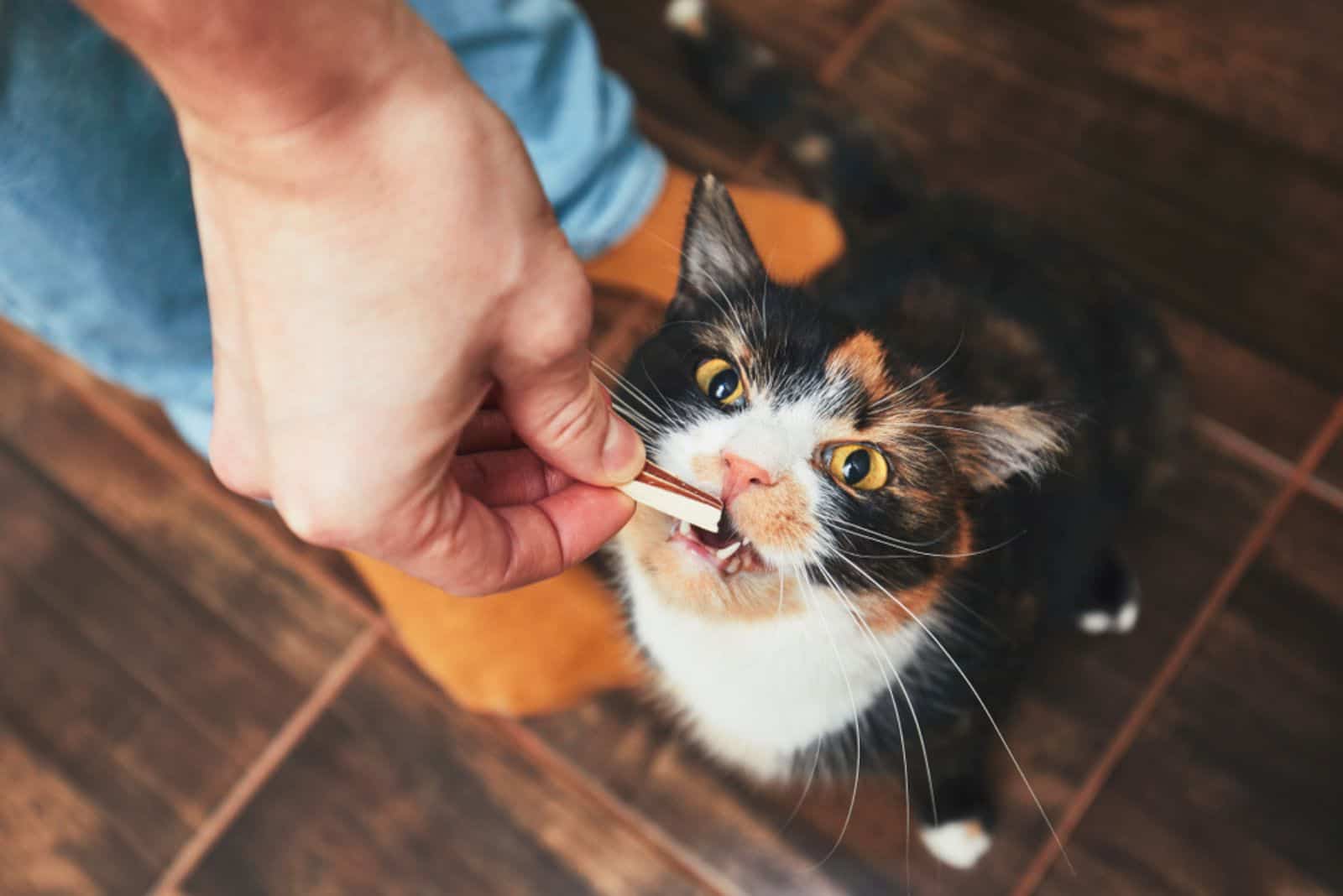
When finding the perfect cat treats for your kitty, I recommend simply choosing store-bought cat treats. Many human foods are healthy but are not safe for cats to have.
Cat lovers, no matter how hard it is to say No to your cat asking for some of your food, it’s best not to give your cat your nibbles. It’s okay if your cat eats human food once in a while, but it should never be a daily habit.
Luckily, the cat treat market is thriving, and you can choose from a million different cat treat options!
In Conclusion
Can cats eat hummus? The short answer is: Your cat will be fine with a few licks of hummus. However, hummus is known to cause unwanted side effects, especially if eaten in large amounts.
If you know your feline friend has eaten more hummus than is safe, you need to keep an eye on potential side effects arising, such as vomiting, diarrhea, lethargy, pale gums, etc. This is not likely to happen, as most cats are not tempted to eat a lot of hummus in the first place.
However, your kitty might be a huge hummus lover, so you should never leave a plate of hummus on the table! Eating hummus on a regular basis is definitely not recommended, as hummus has a lot of calories that could potentially lead to weight gain.
Since hummus offers no health benefits but rather health issues (especially gastrointestinal issues), you should not give your cat hummus. There are much better cat treat options; you should keep all your hummus to yourself!
Related Articles:
Can Cats Eat Pumpkin? Prepare Your Kitty For Spooky Season
Can Cats Eat Gingerbread? Learn More About Safe Cat Treats
Can Cats Eat Cake? Finding The Right Treats For Your Kitty
Like this post? Share or pin it for later!



